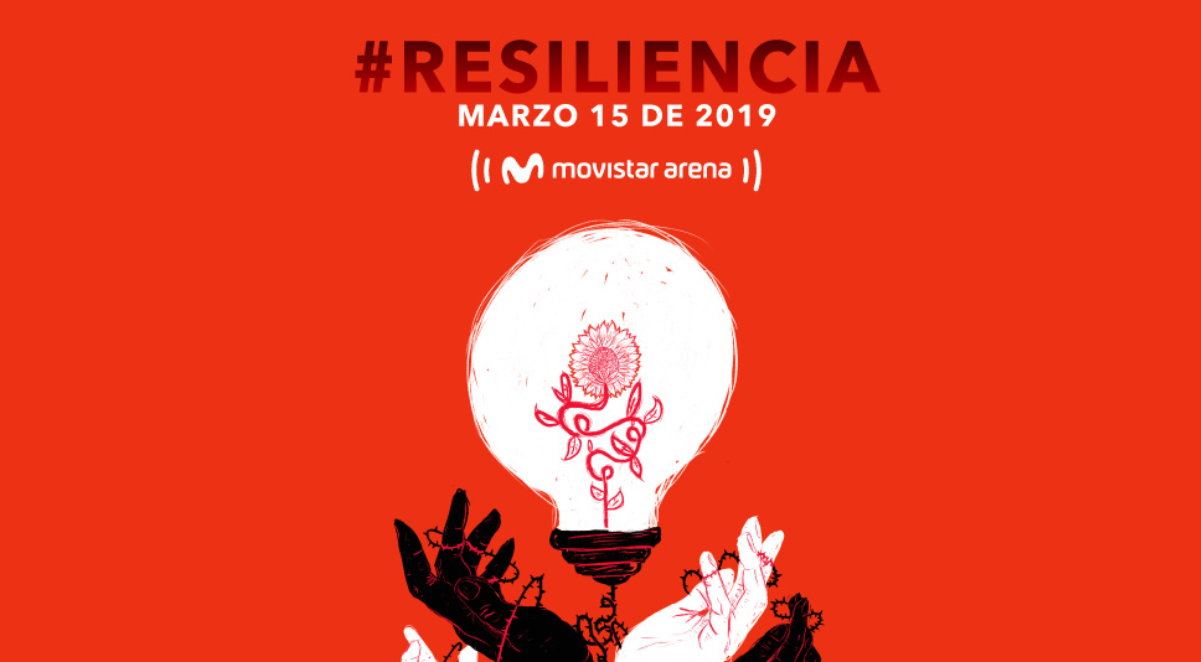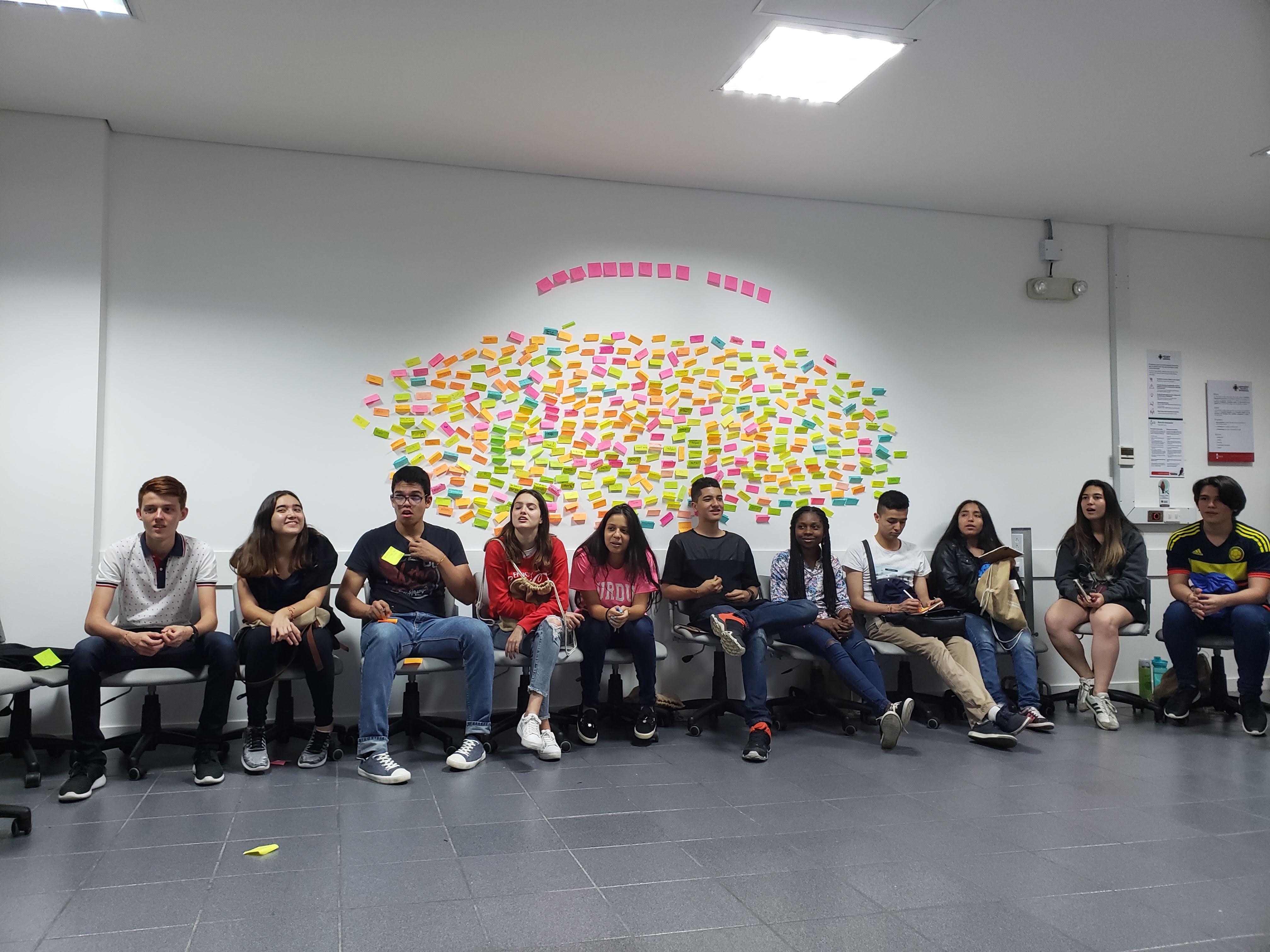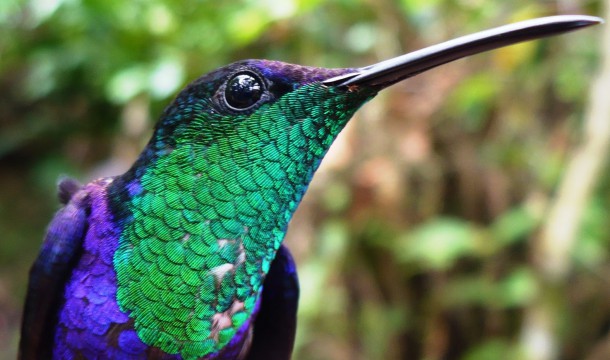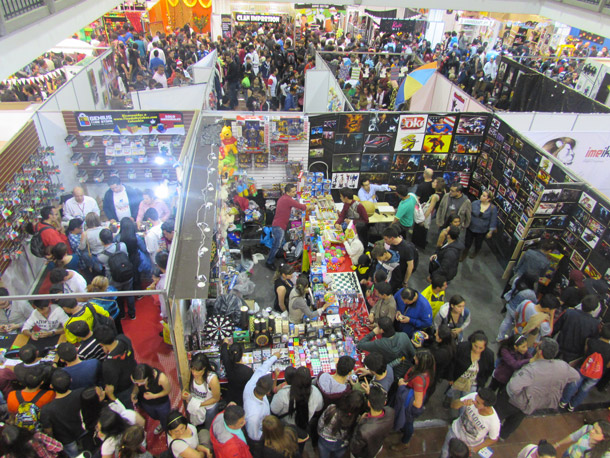Electronica wizard Juan Carlos Torres Alonso, better known as Okraa, was born in Bogotá but moved to That London in 2018. He’s back in town for Festival Esteréo Picnic 2024, where he’s lighting up the Colsubsidio stage on Friday night.
Okraa freewheels through a range of styles. He says, “I guess it’s electronic music. What I explore most is soundscaping, but I’m not stuck in a single genre. I like to experiment with all sorts of BPMs and the music can have very dancey vibes or be very ambient. I come from a creative space that feels very free.”

Of course, at an event like Festival Estéreo Picnic 2024, there’s a certain style, which he acknowledges too. “While I’m not a guy that wants to fit a mould, I also want to connect with people who aren’t familiar with the project which means finding a middle ground.”
“I’m still ironing out details, he says of his setlist. “I want to include a bit of everything I do. There will be some dark stuff, some ambient, there will be a lot of the electro, garage stuff. I’m still figuring it out. It’s definitely going to be beats-oriented, not just ambient. It’s not that sort of festival, I know that.”
Okraa may no longer be based in Bogotá, but it’ll always be home. “It feels great,” he says, to be back in the city. “The gigs [I played] last year were amazing, there was a massive connection with people, so I’m very excited. At the beginning of the 2010s, people seemed to want to give the local bands hard times so maybe it’s changing for the better.”
His soundscapes conjure up dark, ethereal, mysterious worlds with at times an almost spiritual quality. This is music that few people regularly associate with a country that has so much traditional music with deep roots.
I wonder how much musical tradition means to him. “It’s a funny one to answer,” he says. “Because in terms of the type of music I do, the UK is so important, but I’m Colombian, of course. I grew up listening to salsa and I’ve always been curious about Colombian traditional music, which I’ve experimented with.”
“I would be lying if I said cumbia was my biggest influence,” he continues. “But I love it. I love bullerengue too and so much other music and I feel very attached and identified to it. I feel that there are many ways of being Colombian. Six or seven years ago I thought I didn’t use a guaracha or something like that, that my music wouldn’t sound Colombian.”
He rejects fixed notions of national identity, commenting: “There’s this thing in Colombia, I had it at university, where people complain about artists trying to sound like they’re from the UK or US. They want you to use traditional instruments. I gave that a go, and I will continue, if it comes from a creative space and not pressure.”
Okraa has enough confidence to reject that pressure. He says, “I’ve definitely felt that sometimes, like could there be more gaita or whatever. It’s tough, because sometimes you feel like you should do more of that but right now I feel I shouldn’t.” He’s not wrong to resist – his music is an equally valid expression of his roots and sounds beautifully organic.
Why Okraa came to London
He’s a philosophical and considered speaker, taking his time over answers and clearly self-reflective about his career. As a curious student of music, he was ready to search for new things: “By the time I left it felt saturated in terms of urban Latin music on radio and TV. Nothing wrong with that, but I wanted something new.”
Running away from problems doesn’t always work though, as he ruefully recounts: “The funny thing is, I wanted to move away from reggaeton and then when we went to Oxford Circus the first thing we saw was a store with a massive J.Balvin display. London goes reggaeton, I was like ‘Wow’.”
That wasn’t everything, of course, in a colossal cultural capital with dozens of venues: “That’s definitely one of the reasons I left, to find a new landscape, which London is great for because there are ambient music nights all through the week, and they’re packed if it’s good music, so I really enjoy that.”
“At first, it was that most of my favourite artists are from London, but now I think it’s a place where people are really into music. I can spend a whole afternoon at a record shop chatting to whoever’s there and find so much music. Much better than the Spotify algorithm, no offence to them.”
Okraa is also receptive to the behind-the-scenes nature of the business. “I’ve had the chance to learn so much about the industry too, how they run independent record labels which I think is something we can develop much more in Colombia. I don’t want to say there are no small independent labels, but you don’t have a Warp Records or Ninja Tune there.”
This is something he thinks could be a game changer for the local scene in terms of building something with long-term prospects. “I think it would be a great thing for the industry in Colombia to get more well managed and efficient independent labels.”
Of course, making music in a foreign country isn’t always easy: “It’s quite challenging, that’s for sure but there are loads of opportunities. You can keep trying until you find something that works, which I wouldn’t say is the same in Bogotá.” He’s clearly made the most of those chances.
He’s had similar experiences in terms of gatekeepers to traditional music: “I think both places to be honest with you, people try to put you in a little box as a Colombian. There’s a pressure when you’re outside your country to do whatever people think your country is.” That means no bongos and maracas, London philistines.
So how have the notoriously cold Londoners been with him? “More responsive than not, has been my experience,” he says. “People seem curious, especially at ambient music events.” He’s happy and enthusiastic, despite having also been on the wrong end of the famously scathing London wit.
“The sarcasm I find really hilarious,” he says with a chuckle. “It’s a way of bonding I guess. At first, I would sometimes struggle with it, the harsher the banter the more they like you. Now it’s fine, I quite like it.” Classically British understatement there – he’s no doubt popular due to the sheer quality of his musical project. Don’t miss this one, at Festival Estéreo Picnic 2024 in Bogotá or That London later in the year.
Okraa plays at 5.45pm on Friday March 22 on the ColSubsidio stage at Festival Esteréro Picnic 2024 in Parque Simón Bolívar. Tickets still available here at time of publication.





